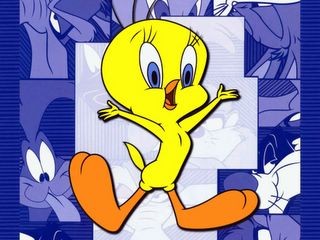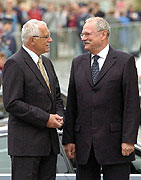Chinese develop a foreign ear

Chinese develop a foreign ear
By Xu Jitao
Shanghai Star. 2004-08-05
http://www.shanghai-star.com.cn/2004/0805/cu18-1.html
MOST Chinese born before the 1980s have deep impressions of dubbed movie classics such as "Jane Eyre", "Waterloo Bridge" and others. They remember it as natural that the exotic heroes or heroines in the movie would speak Chinese: they are very accustomed to the voices that belong to dubbing artists. As far as those audiences were concerned, the heroes and heroines in the movies were foreigners who happened to speak Chinese.
Glory history
The Shanghai Film Dubbing Studio has been the most important place for the emergence of an industry based on translating and dubbing films into Chinese. Before 1949, there were no dubbed films in China: the audiences had to read pamphlets telling about the content of the films, or subtitles presented by slideshow, if they wanted to understand foreign films. Otherwise audiences had to listen to commentators explaining what the films were trying to say. Only a few cinemas were equipped with earphones through which to hear interpreters translating the dialogues in the films for the audiences. This was obviously inconvenient for Chinese audiences who were trying to familiarize themselves with brand-new foreign movies.
In November 1949, after the Shanghai Films Studio had been founded, a department for film dubbing was added. On April 1, 1957, the translating and dubbing films department of the Shanghai Films Studio became an independent organization and its name was accordingly changed to the "Shanghai Film Dubbing Studio". From then on, it became the only professional translating and dubbing studio for foreign films in China.
During the past 47 years, the studio has introduced more than 1,000
foreign movies into China from roughly 50 countries.
Among these films, there are many classics that have influenced generations of Chinese, such as "Death on the Nile", "Zorro" and "La Tulipe Noire". In the memories of most Chinese audiences, Peter Ustinov, Alan Delon, Vivien Leigh or Robert Taylor are always associated with the attractive voices of Bi Ke, Tong Zirong, Liu Guangning or Qiao Zhen.
It would have been awkward for these audiences to accept such heroes or heroines speaking in foreign language on the screen. Dubbed voices have replaced the original voices of the actors or actresses and become an inseparable parts of these movie classics.
Lost flavour
But the trend has changed, especially in cities such as Shanghai. More and more young men have begun to take the original foreign films with subtitles as their first choice when they decide to go to cinema. For them, dubbed films lost their attractions long ago.
In 2001, when "Pearl Harbour" was imported into China, Shanghai took five original copies of the movie out of 10 and became the city to import the most original copies in China. Most people chose the undubbed one when they decided to watch the movie.
According to the Shanghai Youth Daily's interview with a young actress, Yan Xiaopin, after she had watched the original copy of Pearl Harbor, she felt that dubbing would have harmed the original dialogue and the subtle performance of the actors and actresses.
Zhou Liming, a film reviewer who lives in America, had commented that dubbing jeopardized the original films: dubbing makes the dialogue in the films become awkward; the original soundtrack gets lost in the dubbed version of the films; and the audiences lose their chance to learn and understand foreign language and culture in a direct way.
So the comments cited above by the young actress and the film reviewer can be taken as representative of people's attitudes in Shanghai towards the dubbing of films. What concerns them most is that the films' original soundtracks and actors' performances may be jeopardized by the dubbing. It seems reasonable, but in fact, it involves great prejudices and misunderstandings about the dubbing of films.
As the leading and only independent film-dubbing studio in China, the
Shanghai Film Dubbing Studio has a first-class sound effects studio that is the equal of the great studios in Hollywood. According to the chief of the Shanghai Film Dubbing Studio, in recent years, they have imported the most advanced sound effects equipment to keep up with the development of sound technologies elsewhere in the world. What they have done in their studio while dubbing films is just the same as the sound engineers did for the original films.
Post-colonial voices
On the other hand, the dubbing work doesn't alter the characters in the original films. Quite the opposite, it helps audiences to understand the characters in the films better. "I don't believe that everyone who goes to the cinema knows foreign languages and also I don't believe that they can catch every word that the characters say in the original films, because it's even a tough task even for the professionals in our studio to catch all the words that the characters say in these films," said the chief of the Shanghai Film Dubbing Studio.
So why do people choose to watch the original films? This is a complicated question and what lies behind this tide may be the global wave of post-colonialism: with the languages and cultures of the developed countries dominating the daily lives of people in developing countries.
In his review article, Zhou Liming said that watching dubbed films shows audiences have no taste and are "illiterate". This kind of opinions may indicate what many Chinese think in the context of post-colonialism.
"It's natural for people to follow the cultures of developed countries today. But we cannot ignore the side-effects that this wave brings. For people who do not know foreign languages in most rural areas, the decline of the dubbing of films is not fair," said Liu Yong, an independent film reviewer.
Another concern is the connection between piracy and the high cost of movie tickets. The accessibility of the latest pirated movies and their low price are in sharp contrast with the relative rarity and high expense of foreign movies put on in the cinemas. "I think maybe a relatively lower price would bring more audiences back to the cinemas," said the chief of the Shanghai Film Dubbing Studio. "Maybe our dubbed films would benefit from this."




